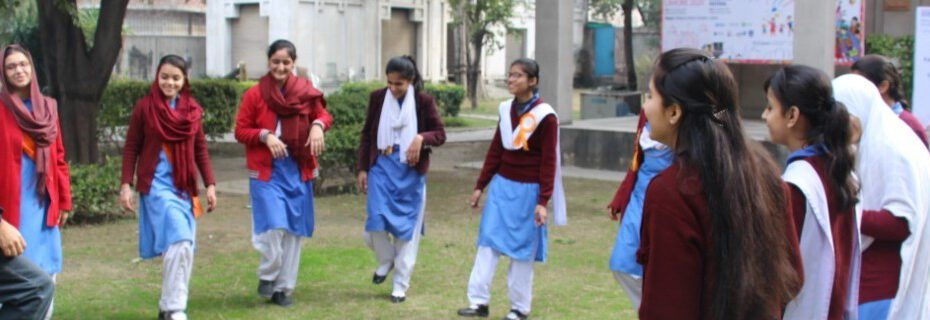For young people in Pakistan COVID-19 has hit hard. However, it is also youth that have been able to support their peers. Umair shares how Kafka Welfare Organization has worked to make the difference on SRHR towards a healthy and peaceful future for youth.
I have been a sexual reproductive health and rights (SRHR) activist and working to educate young people on SRHR through various tools since 2010. I have faced hardships in my life and, being a sensitive person, I always feel the pain of others. I have experienced the challenges young people were facing around me and taken a step to help others in the same way I responded to challenges around me. I have trained myself through YPEER Pakistan and the youth parliament of Pakistan. I started a non-profit organization, Kafka Welfare Organization, to build a healthy society for young people. In Kafka, we have used various tools such as workshops and training and digital media such as blogs and Facebook to advocate for young people on SRHR issues. We have also worked with people who were not getting any help on sexual and reproductive health.
During the COVID-19 pandemic, I witnessed everyone facing troubles and challenges. Violent incidents like domestic and sexual violence have increased and more stress has exacerbated mental health issues. Our team at Kafka has gathered data, brainstormed, and analyzed the situation. For example, we found that mental health issues have contributed to increased violence. We also saw young people struggling to get help regarding their health, particularly on sexual health.
'We also saw young people struggling to get help regarding their health, particularly on sexual health. '
During the pandemic, we chose online platforms to keep advocating with young people on SRHR issues and to help them deal with stress. We have invested more efforts into our online helpline called ‘Youth Health Friendly Helpline’ that aims to help out young people without discriminating on any SRHR-related issues. Through the helpline, we organized online sessions with my team to mobilize young people so that they can talk in a safe environment and help each other out. There were challenges such as internet or laptop availability, but we overcame this by recording short videos and sending them to our youth members through WhatsApp and groups.
Our strategy was helpful for many youngsters. Some isolated people got the opportunity to talk with other people. It has helped improve their mental health. Young people who were in need of guidance on SRHR or family planning (FP) related issues were guided by my team mentors. Moreover, some victims of violence also contacted us and they got help in the best possible ways. In some cases, we engaged relevant governmental departments such as the Women Development Department to help solve issues of violence, for example to protect the victims.
'They were happy, relieved from stress and external pressure, and were feeling better after sessions.'
We have also adopted online fun activities such as energizers and stretching exercises to help people feel better. After we observed an improvement in the COVID-19 situation, we went back to the open fields with our coaches. Our team organized sport-for-development sessions with COVID-19 standard operating procedures to bring back youth into the field. Through these sessions, a safe space was created where young people could gather, play, and talk with each other without external constraints. They were happy, relieved from stress and external pressure, and were feeling better after sessions.
In the end, I hope that I will stay motivated to keep working for young people in the new normal of COVID-19. My goal is to build a healthy, peaceful society for young people that is free of violence.
About the Author: Umair Asif is passionate about using sports to promote equality and inclusion among youth. Umair was born and raised in Pakistan. He has earned a master’s degree in Sports for Development and Peace at Seoul National University in South Korea. As the Executive Director at Kafka Welfare Organization, he is responsible for leading the organization’s executive team and designing and implementing projects. Through his work, he successfully completed a youth-based family planning advocacy project in Pakistan with the International Youth Alliance for Family Planning (IYAFP). As an advocate, Umair founded a youth-led NGO, received the Make a Difference Award in 2013, initiated a girls’ education campaign and a child marriage campaign in Pakistan, and was named Hero of Pakistan in 2013 by Sama television. To Umair, “meaningful youth engagement” means empowering youth and giving them equal opportunities to participate in decision-making processes.
